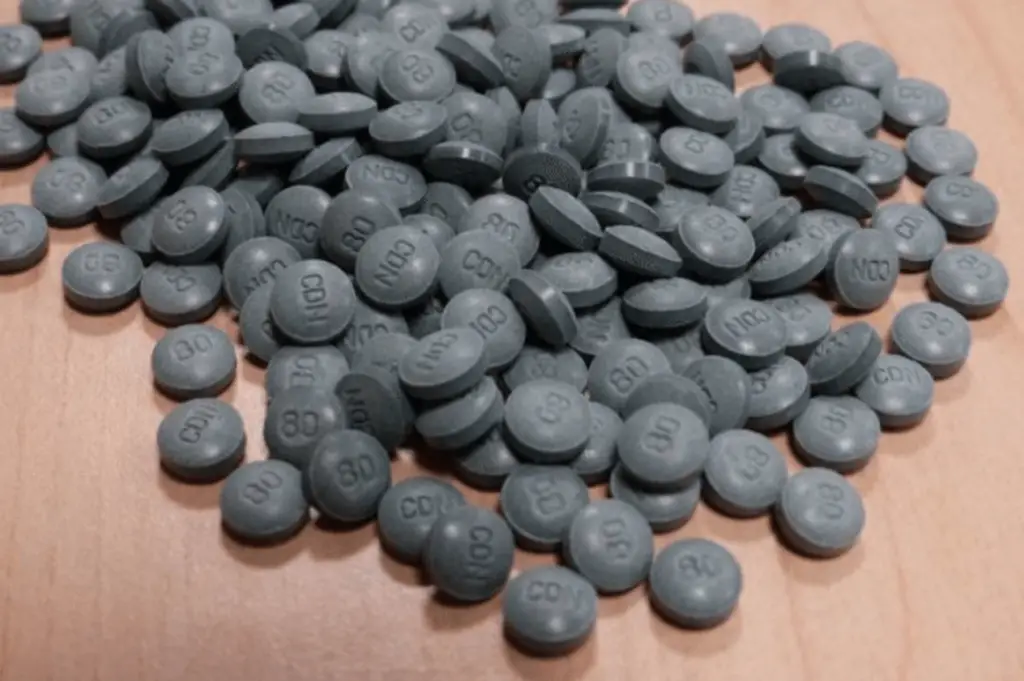 HARRISBURG, Pa. – The Wolf Administration announced yesterday that synthetic fentanyl-related substances will now be classified as Schedule I drugs, making them illegal substances. This comes as the administration continues to take steps to combat the opioid epidemic as part of Governor Tom Wolf’s statewide opioid emergency declaration.
HARRISBURG, Pa. – The Wolf Administration announced yesterday that synthetic fentanyl-related substances will now be classified as Schedule I drugs, making them illegal substances. This comes as the administration continues to take steps to combat the opioid epidemic as part of Governor Tom Wolf’s statewide opioid emergency declaration.
“The opioid disaster declaration was meant to assist Pennsylvanians who are struggling with opioid-use disorder,” Governor Wolf said. “By taking this step to classify synthetic street drugs made with fentanyl-related substances as Schedule I, we are taking the necessary actions to protect the health and safety of Pennsylvanians. This move gives law enforcement a better chance at getting these deadly drugs off the street.”
As one of the original initiatives of the disaster declaration, scheduling synthetic fentanyl-related substances as Schedule I drugs will classify these substances as such for the next year. This action follows similar steps federally to classify fentanyl-related substances as Schedule I drugs by the United States Drug Enforcement Administration on December 29, 2017.
Governor Wolf’s action closes a loophole that had required each substance to be classified individually in order to be considered unlawful. The burdensome process forced police, prosecutors, and policymakers to constantly react when new, or even slightly modified, substances were introduced.
“Classifying synthetic fentanyl-related substances as Schedule I drugs helps law enforcement proactively keep these dangerous – and sometimes highly toxic – substances out of our communities,” said Colonel Tyree C. Blocker, commissioner of the Pennsylvania State Police. “Manufacturers will no longer have the ability to stay ahead of the law by slightly altering the chemical compositions of their substances.”
Schedule I substances are those that are considered the most dangerous and carry a high potential for abuse and addiction.
“There is an important distinction to be made between synthetic fentanyl substances and prescribed fentanyl,” Health Secretary and Physician General Dr. Rachel Levine said. “Synthetic forms of fentanyl can be deadly. Prescribed fentanyl is used for pain treatment under the care of a physician. This rescheduling does not impact fentanyl prescribed by a doctor to treat pain.”
On January 10, Governor Wolf signed a statewide disaster declaration for the opioid epidemic to enhance state response, increase access to treatment, and save lives.
The disaster declaration focuses on 13 initial initiatives:
- Establishes an Opioid Operational Command Center located at the Pennsylvania Emergency Management Agency;
- Expands access to the Prescription Drug Monitoring Program (PDMP) to other commonwealth entities for clinical decision-making purposes;
- Adds overdoses and Neonatal Abstinence Syndrome (NAS) as Reportable Conditions in Title 28, Chapter 27;
- Authorizes an emergency purchase under the procurement code for the 24/7 helpline, 1-800-662-HELP;
- Enables Emergency Medical Services providers to leave behind naloxone by amending the current Standing Order;
- Waives regulations to allow pharmacists to give greater access to naloxone to prisons and treatment programs;
- Allows for the immediate temporary rescheduling of all fentanyl derivatives to align with the federal DEA schedule while working toward permanent rescheduling;
- Authorizes emergency purchasing to allow for an emergency contract to expand the advanced body scanner pilot program currently in place at Wernersville that is used on re-entrants returning to the facility;
- Waives the face-to-face physician requirement for Narcotic Treatment Program (NTP) to allow initial intake review by a Certified Registered Nurse Practitioner (CRNP) or Physician Assistant (PA);
- Expands access to medication-assisted treatment (MAT) by waiving the regulatory provision to permit dosing at satellite facilities;
- Waives annual licensing requirements for high-performing drug and alcohol treatment facilities;
- Waives the fee provided for in statute for birth certificates for individuals who request a good-cause waiver by attesting that they are affected by Opioid Use Disorder; and
- Waives separate licensing requirements for hospitals and emergency departments to expand access to drug and alcohol treatment to allow physicians to administer short-term MAT consistent with DEA regulations without requiring separate notice to DDAP.
Governor Wolf and state agencies have been increasing efforts in the fight against prescription drug abuse in multiple areas, including numerous programs and initiatives:
- Working with the legislature to establish a new law limiting the number of opioids that can be prescribed to a minor and to individuals discharged from emergency rooms to seven days;
- Strengthening the PDMP through the legislative process so that doctors are required and able to check the system each time they prescribe opioids and benzodiazepines;
- Forming new prescribing guidelines to help doctors who provide opioid prescriptions to their patients, including guidelines specific to orthopedics and sports medicine;
- Creating the warm handoff guideline to facilitate referrals from the emergency department to substance abuse treatment;
- Teaming with the legislature to establish education curriculum on safe prescribing for medical schools; and
- Awarding four $1 million grants for medication-assisted treatment using a hub and spoke model for Pennsylvanians who are uninsured, under-insured or have private insurance.
For more information on the state’s efforts to battle the opioid epidemic, visit https://www.pa.gov/guides/opioid-epidemic/.
Copyright © 2024 EYT Media Group, Inc. All rights reserved. Any copying, redistribution or retransmission of the contents of this service without the express written consent of EYT Media Group, Inc. is expressly prohibited.









